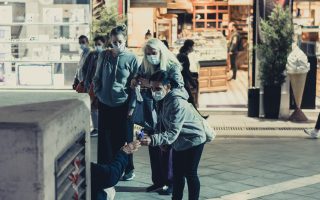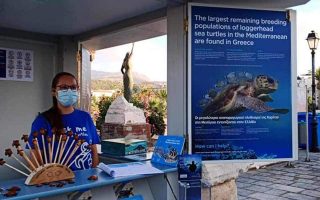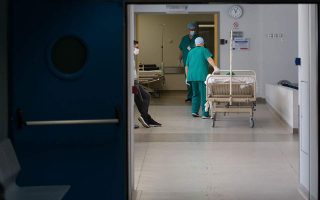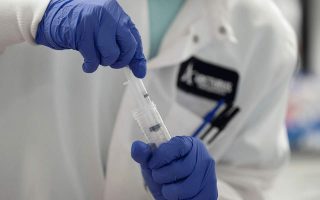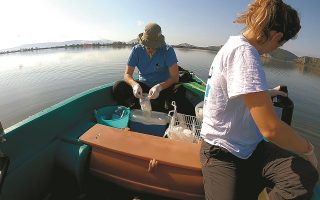A vital lesson in the healing power of nature
Ark of the World’s newest farm school in central Greece has received EU education award
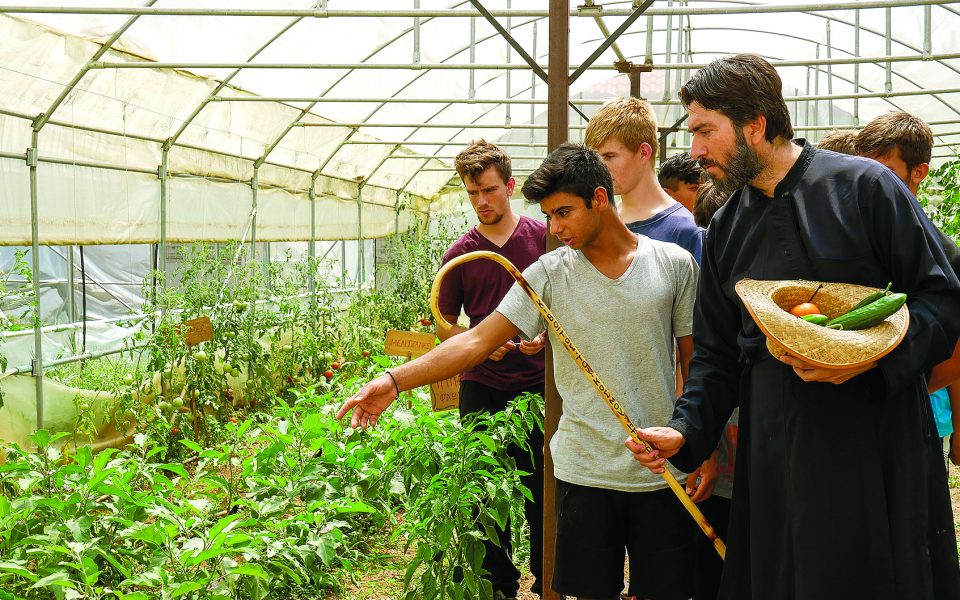
For the children who have faced hardship, who have been taken away from their families by court decision and who have found shelter in the farm schools of the Ark of the World, there is no longer “never” and “nowhere,” lost paths and lost worlds. Only a clear path on firm ground. The path is provided by the Ark of the World’s founder, Father Antonios Papanikolaou, who breaks the vicious cycle of delinquency through healing contact with nature. That is why the Ark’s newest farm school, near the port of Volos in central Greece, recently received the European Union’s GENE Global Education Award 2020/2021.
The school has been operating since 2017 and it is an agricultural and livestock paradise with an incredible view of the city of Volos and the Pagasitikos Gulf, with a farm, fruit and olive groves, a vineyard, a greenhouse, a herb and spice garden, a seed bank and, also, 17 fully equipped workshops, including an oil press, a cheesemaking unit, a winery, workshops producing pasta, traditional products and animal feed, as well as a stone mill. Another agricultural school has been operating since 2015 in the northwestern village of Pogoniani, just 800 meters from the border with Albania, and there are also annexes on the island of Chios and in the southern city of Kalamata.
“The kids need someone to provide them with hope, to see in their eyes that they can succeed, that they are not lost causes, someone who can tell them, ‘Now I’m here for you,’ to fulfill their needs, first to trust and then to love someone, to (help them) overcome their past and flourish,” says Father Antonios, who has created the most innovative care network, not only for neglected children, but also overwhelmed mothers, with six branches across Greece.
“They are not just farm schools, but educational units integrated in our therapeutic instructional program. Our main goal was therapy through contact with the land and animals and had impressive results in the kids’ state of mind. In time, the shelters developed into good schools that cultivate skills and provide the kids with a certificate recognized by the state, before they enter adulthood, so they can rejoin society with capacities and skills. Because these are children with affective and behavioral problems, already quite developed, 16- and 17-year-olds with serious learning gaps, many of them haven’t even finished junior high school (Grade 9),” Father Antonios explains.
In Pogoniani, boys and girls experience the miracles of nature every day. Starting from Grade 1, they are assigned responsibility for farming a small plot of land. They are taught how to raise and care for farm animals, grow fruit and vegetables on a farm plot and in the greenhouse, and produce medicinal herbs; the older kids learn the art of beekeeping and the production of honey, royal jelly and wax creams. In the cheese workshop, they learn to produce and package white and yellow cheeses such as feta, graviera, formaela and haloumi, among others. In the traditional products workshop, they make spoon sweets, trahana (cracked wheat), jams, St John’s wort oil and cosmetic soaps.
Students also learn to take care of the different animals (goats, sheep, cows, ponies, chickens and others). They are taught by experienced professionals who share with them the secrets of the primary sector.
“Knowledge is acquired through their relationships with the professionals, their teachers, their peers, through common experience, cooperation, mutual respect, solidarity, the taste of the experience – from teaching theory in the classroom, to its application in the field, the vineyard, the olive grove, where the kids communicate with nature and discover that it’s not something lifeless, but needs care and nurturing, just like humans. They are taught by nature. I often tell them that nothing is useless, nothing goes to waste, even when it comes to our mistakes, like the manure that we put on the field, which ultimately helps make us stronger. And we make use of metaphors,” says Father Antonios. For example, taking care of a vine is a lot like taking care of the soul, he says. “Like a vine needs the right environment to grow, the environment in which a child grows, the maturity of their teachers, the care, the security, the love these children receive, have a decisive role in their development.” With the grapevine, it is important to manage the bud breaks and ensure steady upward growth and to protect the plant from parasites. Pruning by an experienced vine grower is especially important: Timely, severe and decisive pruning (of defects, bad behavior) hurts: ‘Cutting through the vine produces a tear.’ The dry branches are cut out because they have nothing to offer. They must be burned and not be kept near the plant as they might infect it.”
These metaphors are used during learning and many kids see in a plant’s growth their own story. Says Father Antonios: “I was playing basketball with a child from a very problematic family. While we were playing, I saw great potential in him and I told him, during our game, ‘You must leave Athens and go to the farm school in Volos.’ ‘Me? How?’ he asked. However, by the end of the game he had made his decision. ‘I’ll go,’ he said, and became an excellent professional. One day, when we were together in the field at Kalamata, he took me by the hand and led me to a tangerine tree that had dried up, but, as it had produced a sprout, we had not cut it down, and now it produces the richest, sweetest fruit. He said, ‘You saw this little sprout in me and believed in me, and, in turn, I learned to believe in me.’ He saw in this tree (a metaphor for) his own life.”
